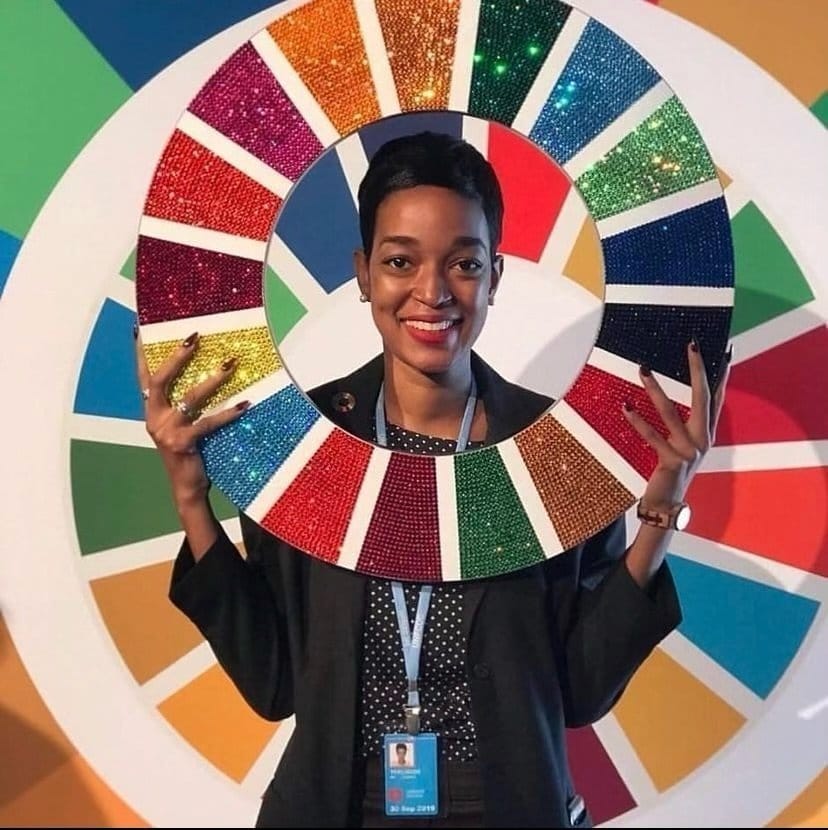
April 28, 2022

Jhannel Tomlinson. Image: Courtesy of Jhannel Tomlinson
French writer Françoise d’Eaubonne coined the term ecofeminism in 1974. In her book Feminism or Death, D’Eaubonne argued that with the planet in women’s hands, everyone will thrive.
The gist:
What is “ecofeminism?”
Ecofeminism “suggests that the patriarchy is the driving source behind the degradation of the planet and exploitation of women — issues that are inextricably linked and cannot be resolved without dismantling oppressive masculine power systems. “
The ecofeminist ideology and movement “also highlights the reality that women are the most impacted by environmental issues. Studies show that women are more likely than men to be impacted by climate change.”
80% of people displaced by climate change are women.
In addition, indigenous and women of color are leading the movement, citing that they have been in the position of having, “traditionally maintained the land due to proximity and gendered expectations that hold them responsible for feeding their families and procuring essential resources like water.”
“Women are not necessarily intrinsically guardians of the earth, but gender inequality has forced them to bear the brunt of the climate crisis by dealing with extreme weather events and food scarcity head-on, more so than men as a result of resource allocation, labor divisions, and representation and power in decision-making spaces.”
—Dominique Palmer, founder, UK Student Climate Network
Palmer, 22, started the org’s “strikes and actions” in 2019 “after discovering how air pollution disproportionately impacted South and East London. She is also an “organizer for the global climate justice youth movement Fridays for Future International, a coordinator at the global youth-led concerts Climate Live, and a member of the UN Women Feminist Coalition for Climate Justice.” She views ecofeminism as”
“…both political activism and an intellectual critique, which brings together feminism and environmentalists to explore the connection of oppression of women and the patriarchy, and climate breakdown…Ecofeminism addresses the extractive male-dominated system in which profits are prioritized over safeguarding the planet.”
Climate justice activist and eco-reporter Adenike Titilope Oladosu, 27, “believes climate justice also plays an integral role in ending harmful practices that contribute to gender inequality.”
When the extremist militant group Boko Haram abducted 276 schoolgirls from the town of Chibok in Borno State, Nigeria, in 2014, she attributed increased gender-based violence to the depletion of natural resources in the area.
Ecofeminism “offers a framework to promote the empowerment of women,” says activist, Mbodji, 27.
“Any person who fights for the protection of the environment by seamlessly integrating the instrumental role of women can be qualified as an ecofeminist.”
Jhannel Tomlinson’s activism is around finding ways to “engage and educate girls across the Caribbean who want to take climate action, but don’t know how to get involved.”
“Even if it wasn't called ecofeminism, just that relationship that women have had with the environment, with being protectors of the environment — I think that has always been the case, especially in Indigenous and communities of color.”
Photo: Global Citizen
Connect with the Global Citizen post here.

